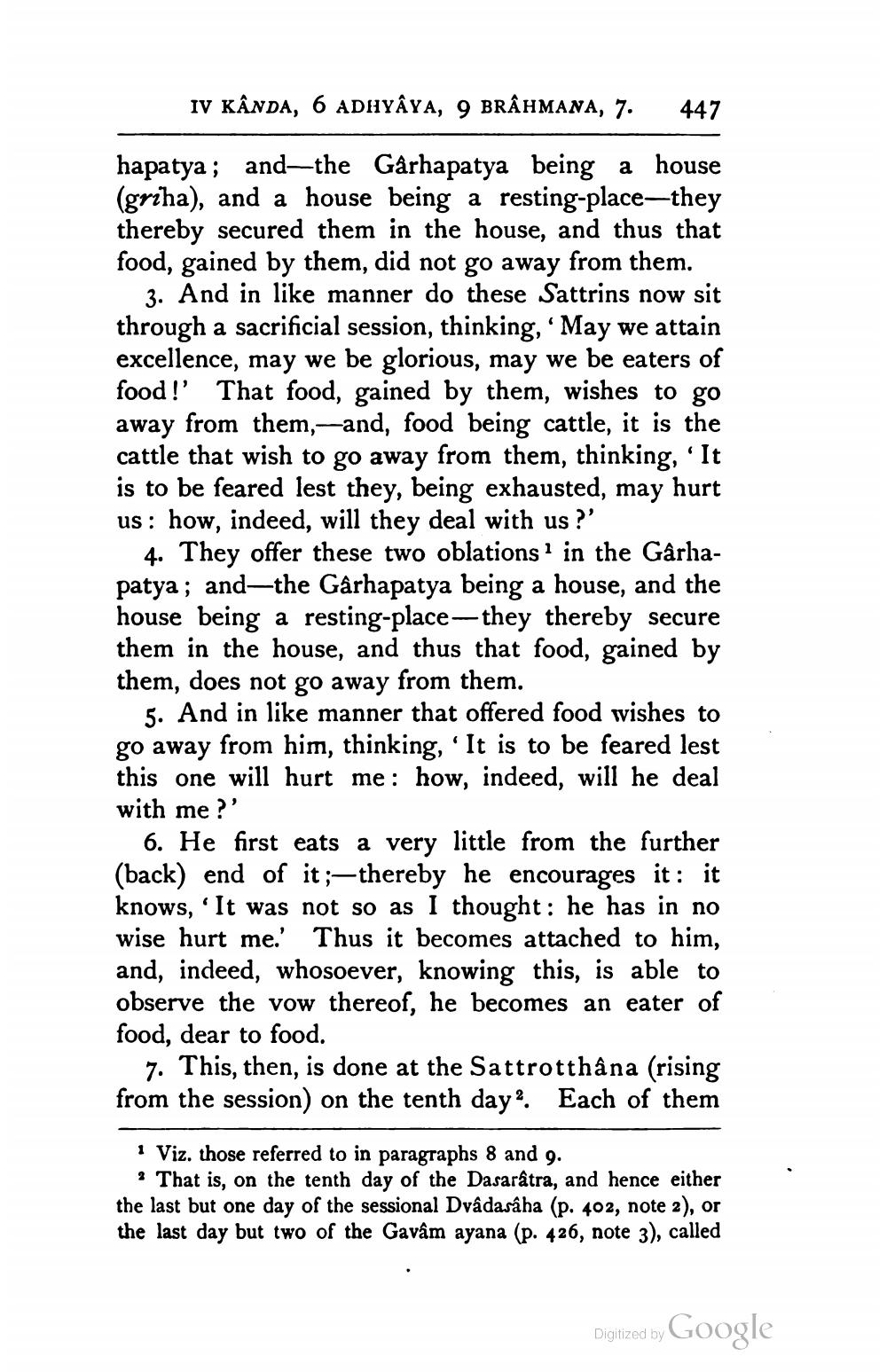________________
IV KÂNDA, 6 ADHYAYA, 9 BRÂHMANA, 7.
447
hapatya; and—the Gårhapatya being a house (griha), and a house being a resting-place-they thereby secured them in the house, and thus that food, gained by them, did not go away from them.
3. And in like manner do these Sattrins now sit through a sacrificial session, thinking, May we attain excellence, may we be glorious, may we be eaters of food!' That food, gained by them, wishes to go away from them,—and, food being cattle, it is the cattle that wish to go away from them, thinking, ' It is to be feared lest they, being exhausted, may hurt us: how, indeed, will they deal with us?'
4. They offer these two oblations in the Gârhapatya ; and—the Gârhapatya being a house, and the house being a resting-place- they thereby secure them in the house, and thus that food, gained by them, does not go away from them.
5. And in like manner that offered food wishes to go away from him, thinking, 'It is to be feared lest this one will hurt me: how, indeed, will he deal with me?'
6. He first eats a very little from the further (back) end of it;—thereby he encourages it: it knows, 'It was not so as I thought: he has in no wise hurt me. Thus it becomes attached to him, and, indeed, whosoever, knowing this, is able to observe the vow thereof, he becomes an eater of food, dear to food.
7. This, then, is done at the Sattrotthâna (rising from the session) on the tenth day? Each of them
· Viz. those referred to in paragraphs 8 and 9.
That is, on the tenth day of the Dasarâtra, and hence either the last but one day of the sessional Dvadasaha (p. 402, note 2), or the last day but two of the Gavâm ayana (p. 426, note 3), called
Digitized by Google




